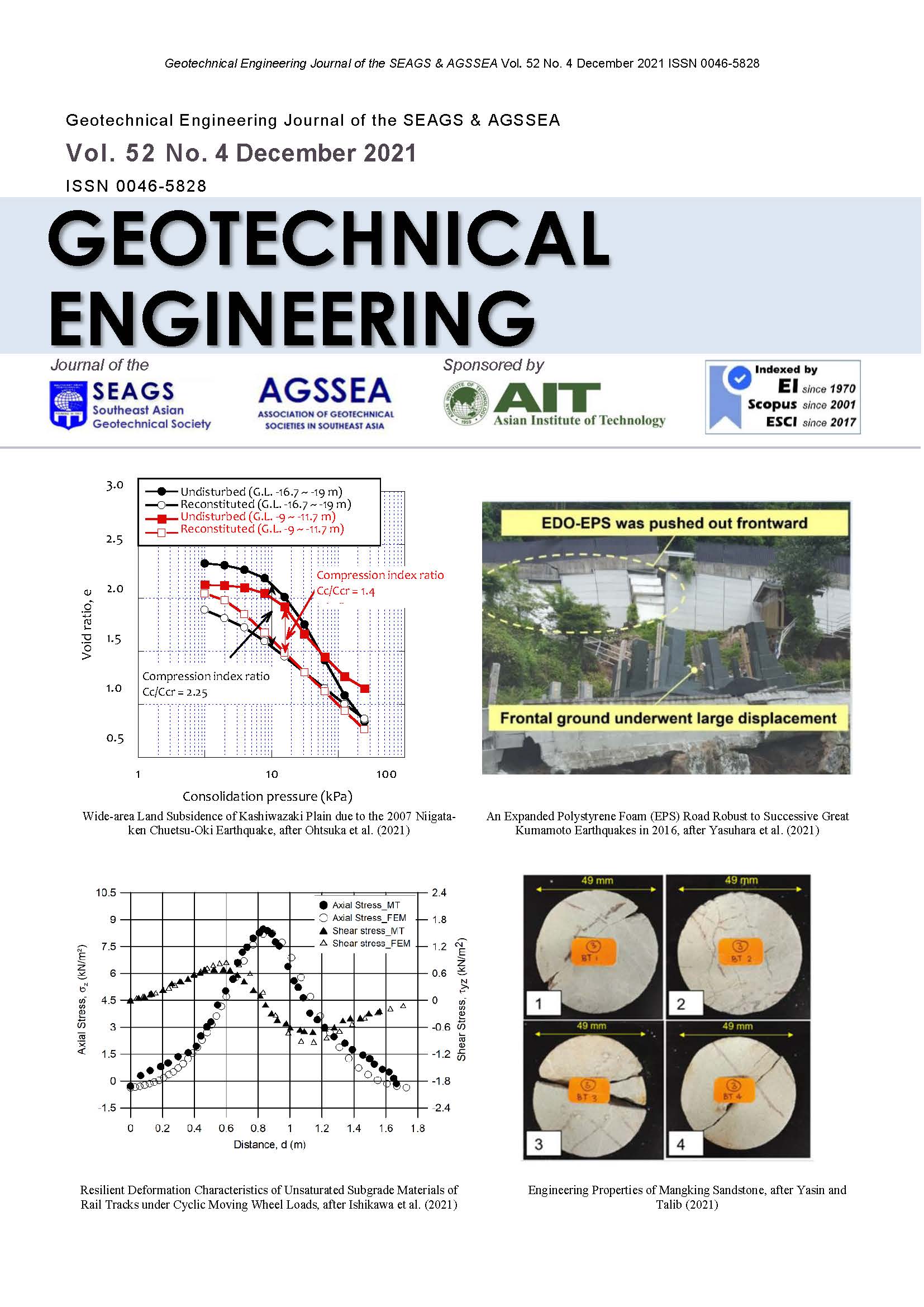Cyclic Behaviour and Dynamic Properties of Texcoco Clays near Mexico City
Main Article Content
Abstract
The soft clayey soils of the Former Texcoco Lake, a few kilometres north of Mexico City are highly compressible materials that exhibit very low shear strengths and are also characterized by having extremely high water contents. These soils have been studied extensively in the past but a revision of its properties and characteristics in now in order because large infrastructure works are underway or are being planned to operate in the zone in the near future. This paper presents an overview of some of the results of recent research into the dynamic behaviour of Texcoco Clays carried out at the National University of Mexico. We present the results of one way consolidated-undrained cyclic triaxial tests in which we varied cyclic amplitude as well applied stresses using high quality samples retrieved from the site. Results are also expressed in terms of accumulated strains and in terms of the evolution of pore pressure during cyclic loading. We complement the results of these tests with those obtained from torsional resonant column tests in which we assess an analytical model to express the stiffness-strain and damping-strain characteristics of these materials. We also look at the relationship of small strain stiffnesses obtained in resonant column tests and those found from the results of bender element measurements and from the results of field measurements using the suspension logging technique. We also put forth correlations between the dynamic parameters obtained in the lab and in the field with data from CPT tests. Finally, we discuss the significance of these tests bearing in mind that the site is subjected to regional subsidence due to the exploitation of the aquifers that underlie the clayey strata.
Article Details

This work is licensed under a Creative Commons Attribution-NonCommercial-NoDerivatives 4.0 International License.
Copyright © 2019 Association of Geotechnical Societies in Southeast Asia (AGSSEA) - Southeast Asian Geotechnical Society (SEAGS).


